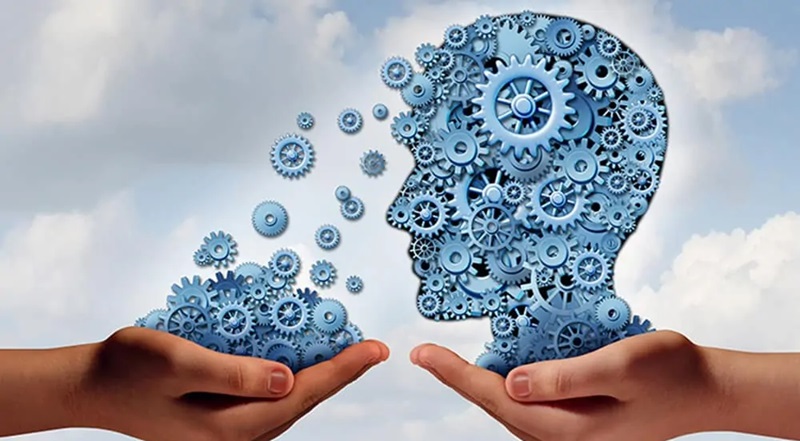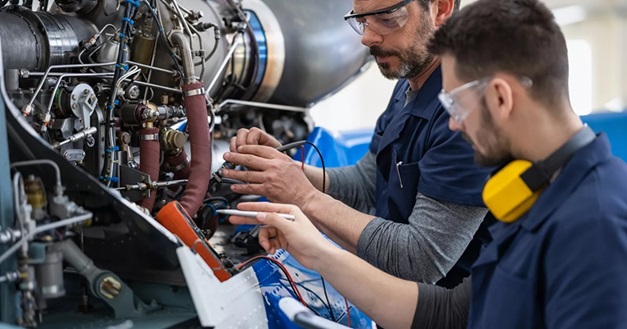Skill development is a crucial aspect of personal and professional growth, encompassing various types of skills—ranging from soft skills and fine motor skills to specialized technical skills. In a rapidly evolving world, skill development has become indispensable for employees and organizations alike. Whether an individual is looking to thrive in a corporate environment, such as Starbucks, or to improve personal competencies, skill development is central to success.
This article explores the meaning of skill development, the types of skills crucial in the workplace, Starbucks’ approach to employee skill-building, and the ways to cultivate fine, soft, and motor skills for personal and professional advancement.
1. What is Skill Development?
Skill development refers to the process of identifying, nurturing, and enhancing specific abilities or skills that enable individuals to perform tasks effectively. These skills can range from interpersonal communication and leadership abilities to technical expertise in fields like IT or finance. The aim of skill development is to build proficiency, foster adaptability, and equip individuals to meet the demands of the job market.
The need for skill development often arises in response to new technological advances, changing job requirements, and evolving organizational needs. Consequently, both individuals and companies benefit from skill development initiatives, as employees become more competent and the organization becomes more competitive.
2. The Importance of Skill Development
Skill development plays a significant role in professional success, job satisfaction, and overall productivity. Here are some key reasons why skill development is vital:
- Improved Job Performance: By developing new skills, employees can perform their tasks with greater efficiency and confidence, leading to higher productivity and better job performance.
- Increased Employability: In today’s competitive job market, candidates with well-rounded skill sets are highly sought after. Skills such as problem-solving, adaptability, and teamwork make job seekers more appealing to potential employers.
- Personal Growth and Fulfillment: Developing skills provides a sense of achievement, boosts self-confidence, and contributes to personal growth.
- Organizational Success: Companies that invest in skill development tend to have lower turnover rates, better employee engagement, and improved innovation.
- Adaptability in a Dynamic Environment: As technology and industry standards evolve, developing new skills ensures that individuals and organizations can keep pace with change.
3. Types of Skills
Skill development encompasses a broad spectrum of abilities, each of which plays a unique role in different contexts. These skills include technical or hard skills, soft skills, fine motor skills, and others, each with its own value in the workplace and beyond.
a. Hard Skills
Hard skills are specific, teachable abilities or knowledge sets required to perform particular tasks. These are often technical or job-specific skills, such as programming, data analysis, or financial modeling. They are quantifiable and typically gained through formal education or on-the-job training.
b. Soft Skills
Soft skills are interpersonal and social skills that enable individuals to work well with others. These skills are essential in nearly every field and position, as they impact communication, collaboration, and conflict resolution.
Key soft skills include:
- Communication: Effective listening, speaking, and writing skills are critical in ensuring smooth and clear exchanges.
- Teamwork: The ability to collaborate effectively within a group is essential for achieving shared goals.
- Adaptability: Being flexible and open to change helps individuals navigate dynamic work environments.
- Time Management: Managing time efficiently is a fundamental aspect of productivity and stress reduction.
c. Fine Motor Skills
Fine motor skills involve the coordination of small muscle movements, typically those involving hands and fingers. These skills are essential in fields such as healthcare, art, and manufacturing, where precision and control are critical.
Examples of fine motor skills include:
- Hand-Eye Coordination: Important for tasks that require accuracy, such as surgery, drawing, and manufacturing.
- Dexterity: Skilled hand movements are crucial in fields like dentistry, where detailed work is required.
- Manual Precision: The ability to handle delicate tools or materials with care and accuracy, essential in professions like jewelry making or electronics.
d. Cognitive Skills
Cognitive skills refer to the mental abilities needed to process information, make decisions, and solve problems. These skills are integral to complex problem-solving and critical thinking, especially in roles that require analytical skills and strategic planning.
Some cognitive skills include:
- Memory: The ability to recall information quickly and accurately is valuable in tasks requiring attention to detail.
- Problem Solving: Critical in identifying and addressing challenges in various fields.
- Decision-Making: Effective decision-making is essential in leadership and managerial positions.
e. Emotional Intelligence
Emotional intelligence (EQ) involves the ability to recognize, understand, and manage one’s own emotions and those of others. EQ is highly valued in leadership and customer-facing roles.
Components of emotional intelligence include:
- Self-Awareness: Understanding one’s own emotions and their impact on behavior.
- Empathy: Recognizing and responding to the emotions of others.
- Self-Regulation: The ability to manage emotions effectively, especially under pressure.
4. Starbucks and Skill Development
Starbucks is a leading example of an organization that places a high value on skill development for its employees. The company’s approach is not only to ensure employees are skilled in making coffee but to help them build a variety of skills that will benefit them beyond the workplace.
a. Starbucks’ Training Programs
Starbucks has several training programs designed to develop both technical and interpersonal skills. The company provides extensive barista training, which covers product knowledge, customer service, and team dynamics. Additionally, Starbucks offers:
- Coffee Master Program: This program offers employees an opportunity to deepen their coffee knowledge and earn the title of “Coffee Master.”
- Leadership Development: Starbucks provides leadership training for employees who show potential for managerial roles. These programs focus on soft skills such as team building, communication, and conflict resolution.
- College Achievement Plan: In partnership with Arizona State University, Starbucks offers employees a chance to complete an undergraduate degree. This initiative is a significant investment in long-term skill development.
b. Building Soft Skills
Starbucks places a strong emphasis on interpersonal skills, which are crucial in a customer-centric business. Employees are trained in communication, empathy, and active listening, all of which contribute to a positive customer experience.
c. Impact on Career Growth
Starbucks’ commitment to skill development helps employees build skills they can carry into other positions or careers. This comprehensive approach enhances job satisfaction, boosts employee retention, and prepares workers for career advancement within Starbucks or other industries.
5. Fine Motor Skills in the Workplace
Fine motor skills are essential in various professions, especially those requiring precision. For example:
- Healthcare: Surgeons, dentists, and nurses rely heavily on fine motor skills for tasks that demand exactitude, such as suturing, injecting, and examination.
- Manufacturing and Assembly: Workers involved in assembling delicate or small components must possess excellent manual dexterity.
- Creative Arts: Artists, musicians, and sculptors depend on fine motor skills to execute their work with finesse and detail.
Developing fine motor skills often involves practice, exercises that improve hand-eye coordination, and tasks that enhance dexterity.
6. Soft Skills Development and Its Benefits
Soft skills are increasingly seen as essential to workplace success, as they affect team dynamics, customer satisfaction, and employee morale. Unlike hard skills, which can be taught in a formal setting, soft skills are often developed through experience and practice.
Ways to Develop Soft Skills
- Workshops and Training Programs: Many companies provide workshops focused on teamwork, communication, and problem-solving.
- Mentorship Programs: Mentorship allows employees to learn interpersonal and leadership skills from experienced professionals.
- Role-Playing Exercises: Role-playing scenarios help employees practice communication and conflict resolution in a controlled setting.
- Self-Reflection: Reflecting on personal strengths and weaknesses helps in the continuous development of soft skills, particularly emotional intelligence.
7. Skill Development Strategies for Employees
For employees looking to improve their skills, here are some effective strategies:
- Set Goals: Identify specific skills to improve and set achievable goals for growth.
- Seek Feedback: Constructive feedback from peers and managers can provide valuable insights for improvement.
- Practice Consistently: Skill development, particularly in soft and fine motor skills, requires consistent practice.
- Take Online Courses: Platforms like Coursera, LinkedIn Learning, and Skill share offer courses in various skill areas.
8. Future of Skill Development
As automation and AI continue to transform industries, skill development will remain crucial. There will be a growing demand for technical skills in fields like data science and AI, as well as soft skills such as creativity, adaptability, and emotional intelligence. For companies, skill development will be essential to adapt to new market demands and to retain a capable workforce.
Conclusion
Skill development is a lifelong journey that enhances both personal and professional growth. Whether it’s technical expertise, fine motor skills, or emotional intelligence, each type of skill adds value to an individual’s portfolio and boosts employability. Starbucks’ emphasis on employee training exemplifies the benefits of investing in skill development, fostering a culture of continuous learning and growth. For individuals, cultivating these skills can lead to career advancement, job satisfaction, and personal fulfillment. As industries evolve, skill development will continue to be a cornerstone of success in an increasingly complex world.















Leave a Reply